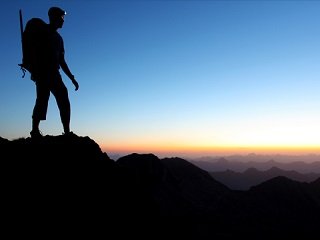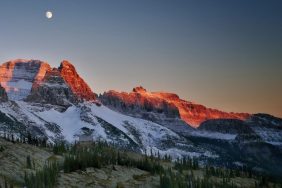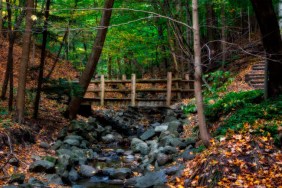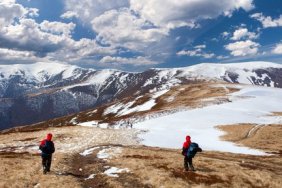 More often than not, when outdoorsmen plan a hike, they do so with a major concern on where they want to hike. However, aside from those who—due to circumstances—find themselves in the woods at night, there are many who take into consideration when they want to hike. This is where hiking at night enters the picture. Night hikes are going to be different than exploring trails during the day, though, and today we’ll take a look at some tips to help you safely meander through the backcountry beneath the moonlight.
More often than not, when outdoorsmen plan a hike, they do so with a major concern on where they want to hike. However, aside from those who—due to circumstances—find themselves in the woods at night, there are many who take into consideration when they want to hike. This is where hiking at night enters the picture. Night hikes are going to be different than exploring trails during the day, though, and today we’ll take a look at some tips to help you safely meander through the backcountry beneath the moonlight.
Obviously, whether you’re planning a night hike or there’s a chance of being on the trail after dark, you’ll want to make sure to have plenty of lights on hand. Flashlights tend to be the popular choice, but it’s smart to keep some headlamps on hand, as well. Keep in mind, though, that lights will hinder your night vision for several moments each time you use one, not to mention pose a shock to passive nocturnal animals like raccoons or owls, that aren’t used to bright LED lights shining in their face. Also, be sure to have extra batteries, as well. Furthermore, it’s always a good idea to bring a lighter, or matches, and tinder to make torches in case your batteries die.
Never overlook the old phrase, “Safety in numbers.” Hiking in a group is a good idea, as well, no matter the time of day, especially in regions where predators like wolves, bears, or mountain lions are a threat. Plus, more people increases the likelihood of someone having electronic devices or some medical knowledge, and it also provides an extra set of hands in an emergency.
Checking the weather forecast is a must, day or night. Preparing for potentially bad weather by dressing appropriately and bringing clothes to handle the cold or rain will make all the difference. However, if the forecast is calling for extremes, it might be best to change your night hike to another time. Better safe than sorry, right?
Night isn’t the best option for exploring unfamiliar territory. For this reason, it’s best to plan your night hike on a trail you know. Not only will this be safer, but you’d be surprised at how different even the familiar trail looks and feels at night, as opposed to day.
Night hiking can be a great way to experience a whole new level of nature. The wilderness is exciting under the moonlight, and the experience will allow you to see wildlife you wouldn’t normally see during the day. It’s not advisable to simply head off into strange territory in the dark, though, and the tips outlined above will go a long way towards keeping you safe on a night hike.








